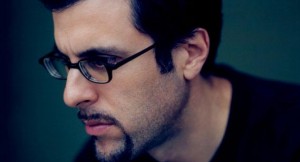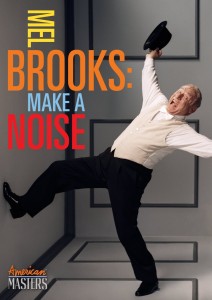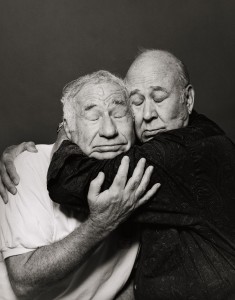 Robert Trachtenberg is the Writer, director, producer and editor on the latest American Masters special “Mel Brooks: Make A Noise”. Robert has made several films for “American Masters” including specials on Cary Grant, Gene Kelly & George Cukor. He is a bestselling author (“When I Knew”) and award-winning photographer. Media Mikes had a chance to chat with Robert about his work with Mel Brooks and his love for photography.
Robert Trachtenberg is the Writer, director, producer and editor on the latest American Masters special “Mel Brooks: Make A Noise”. Robert has made several films for “American Masters” including specials on Cary Grant, Gene Kelly & George Cukor. He is a bestselling author (“When I Knew”) and award-winning photographer. Media Mikes had a chance to chat with Robert about his work with Mel Brooks and his love for photography.
Mike Gencarelli: How did you end up working on “Mel Brooks: Make A Noise” for American Masters?
Robert Trachtenberg: Susan Lacy, who is executive producer of the series, had secured Mel. She thought my sense of humor would pair up nicely with his, so she called and asked if I’d like to direct the film.
I’d like to direct the film.
MG: What is it like working with a legend like Mel Brooks?
RT: The old saying, “comedy is serious business” is true: he’s very professional, actually very “Old Hollywood” in the way he runs things. We’d meet once a month, film for as long as he could stand, and then do it again the following month.
MG: How much footage was shot to make up this 1 1/2 hour special?
RT: We shot about thirty hours of interviews just with Mel alone over a four month period.
What is your favorite Mel Brooks film?
RT: Probably YOUNG FRANKENSTEIN – I think it’s the most fully realized of all his films.
MG: How long did it take to get that excellent shot of Carl Reiner & Mel Brooks?
RT: They gave me ten minutes! Guys who cut their teeth in live television have zero patience for an entire shoot – they expect everything to happen fast.
MG: How does this compare from your American Masters specials for Gene Kelly and Cary Grant?
 RT: This time my subject was alive so that made a big difference. It’s impossible to compare in that Mel required a completely different approach – I knew if I asked the questions correctly, I wouldn’t need to rely on critics and academics in the interviews, for example. I really wanted Mel to tell his own story, firsthand. If I did my job right, he would be honest and candid about what worked and what didn’t in his career.
RT: This time my subject was alive so that made a big difference. It’s impossible to compare in that Mel required a completely different approach – I knew if I asked the questions correctly, I wouldn’t need to rely on critics and academics in the interviews, for example. I really wanted Mel to tell his own story, firsthand. If I did my job right, he would be honest and candid about what worked and what didn’t in his career.
MG: I am a big fan of your photography; what does it take to get the perfect shot?
RT: I think the ability to work on your feet – you go in with one idea, and then it can quickly morph into something completely different due to a variety of factors. And you have to be malleable to that.
MG: I have to ask what was it like photographing Larry Hagman?
RT: Perfect example – for some reason I thought he’d be serious, and he couldn’t have been more of a lovable goofball.
MG: Do you have plans to write and direct more in the future?
RT: Definitely. I love that Director’s Guild health insurance!
Related Content
- Aleksander Nordaas talks about his new film “Thale”
- Eric Walter talking about directing “My Amityville Horror”
- Brett Alan Coker Talks About His Upcoming Project (And How You Can Help)
- Vlad Yudin talks about directing the long-awaited follow up to “Pumping Iron” titled “Generation Iron”
- Robert Carlyle talks about his role in film “California Solo”

